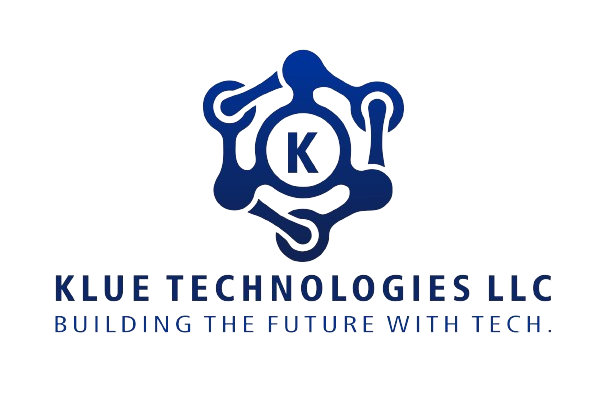Introduction: In the digital era, cloud computing has become the cornerstone of modern IT infrastructure, powering everything from enterprise applications to cutting-edge AI algorithms. Among the leading cloud platforms, Microsoft Azure stands tall, offering a comprehensive suite of services and solutions to organizations around the globe. If you’re considering a career in Microsoft Azure in 2024, you’re setting course for a dynamic and rapidly expanding field with abundant opportunities for growth and innovation. In this guide, we’ll explore the azure horizons and chart a course for aspiring professionals to navigate the azure waters of this exciting ecosystem.
Understanding the Azure Ecosystem: Microsoft Azure is a vast and versatile cloud platform that provides a wide range of services, including computing, storage, networking, databases, AI, and more. With a global network of data centers and a rich ecosystem of partners and developers, Azure enables organizations to build, deploy, and manage applications and services with unprecedented scalability, reliability, and flexibility. From startups to multinational enterprises, businesses of all sizes and industries rely on Azure to drive innovation, accelerate digital transformation, and gain a competitive edge in the marketplace.
Charting Your Azure Career Path: Embarking on a career in Microsoft Azure requires a strategic approach and a commitment to continuous learning. Here are some steps to help you navigate your azure journey:
- Gain Fundamental Knowledge: Start by familiarizing yourself with the core concepts of cloud computing and Microsoft Azure. Explore the Azure portal, documentation, and online tutorials to learn about key services such as Azure Virtual Machines, Azure Storage, Azure App Service, and Azure SQL Database. Consider earning certifications such as Azure Fundamentals, Azure Administrator Associate, or Azure Developer Associate to validate your skills and expertise.
- Specialize in a Focus Area: Azure offers a diverse range of services and solutions tailored to specific use cases and industries. Identify your areas of interest and expertise, whether it’s infrastructure as a service (IaaS), platform as a service (PaaS), software as a service (SaaS), data analytics, AI and machine learning, or Internet of Things (IoT). Deepen your knowledge and skills in your chosen focus area through hands-on experience, training, and certification.
- Build Practical Experience: Practical experience is essential for success in the azure field. Seek opportunities to work on azure projects, either through internships, freelance gigs, or full-time employment. Experiment with deploying and managing azure resources, optimizing performance and cost, implementing security best practices, and troubleshooting common issues. Leverage tools like Azure DevOps and GitHub to collaborate with teammates and contribute to open-source projects.
- Stay Abreast of Azure Innovations: Azure is constantly evolving with new features, services, and updates being released regularly. Stay informed about the latest azure innovations by following azure blogs, attending azure events and conferences, and participating in azure communities such as the Azure Dev Community or the Azure subreddit. Experiment with new azure technologies and explore how they can address emerging business challenges and opportunities.
Navigating Azure Career Paths: The azure ecosystem offers a wealth of career paths and opportunities for professionals with diverse backgrounds and skill sets. Some potential azure career options include:
- Azure Administrator: Manage azure subscriptions, configure virtual networks, provision azure resources, and monitor azure services to ensure optimal performance, security, and compliance.
- Azure Developer: Design, develop, and deploy azure applications using azure services and tools such as azure App Service, azure Functions, azure Kubernetes Service (AKS), and azure Logic Apps.
- Azure Data Engineer: Design and implement azure data solutions using azure SQL Database, azure Cosmos DB, azure Data Factory, azure Databricks, and azure Synapse Analytics to ingest, process, analyze, and visualize data at scale.
- Azure Solutions Architect: Design end-to-end azure solutions that meet business requirements and technical constraints, considering factors such as scalability, reliability, availability, security, and cost optimization.
- Azure AI Engineer: Build and deploy AI solutions on azure using azure Cognitive Services, azure Machine Learning, azure Bot Service, and azure Databricks to enable intelligent applications and services.
Charting a Successful Azure Career Path: As you navigate your azure career path, remember to embrace a growth mindset, continuously seek learning opportunities, and adapt to changes in the azure landscape. Cultivate strong communication, collaboration, and problem-solving skills to effectively collaborate with colleagues and stakeholders and drive azure projects to success. Whether you’re just starting your azure journey or looking to advance your azure career to new heights, the azure horizon is filled with endless possibilities for those who dare to explore and innovate in the azure cloud.
Conclusion: As we conclude our azure journey through the azure horizons of 2024, it’s clear that the demand for skilled azure professionals continues to soar. By charting your course with purpose, passion, and perseverance, you can embark on a rewarding azure career that not only offers ample opportunities for growth and advancement but also allows you to make a meaningful impact in shaping the future of cloud computing. So set your sights on the azure horizon, unfurl your sails, and prepare to navigate the azure waters of innovation, collaboration, and transformation. Fair azure winds and following azure seas!

